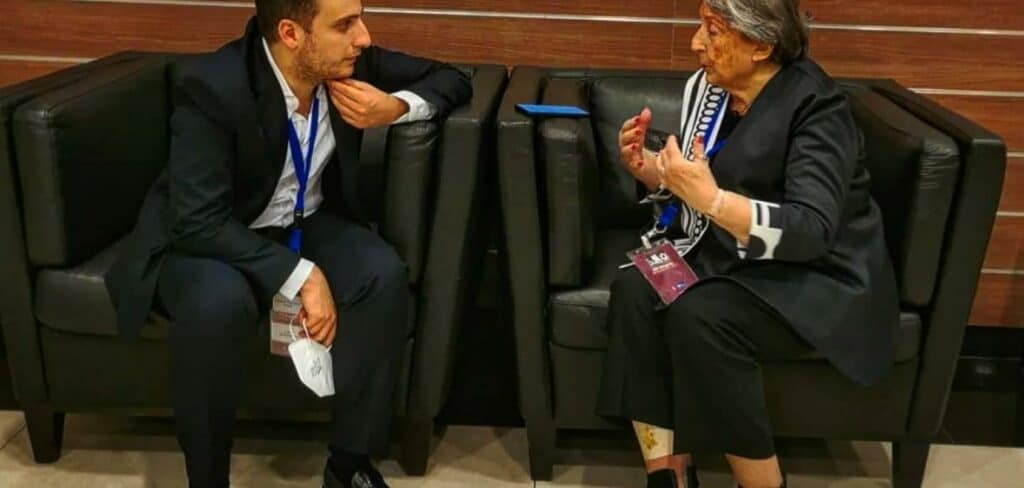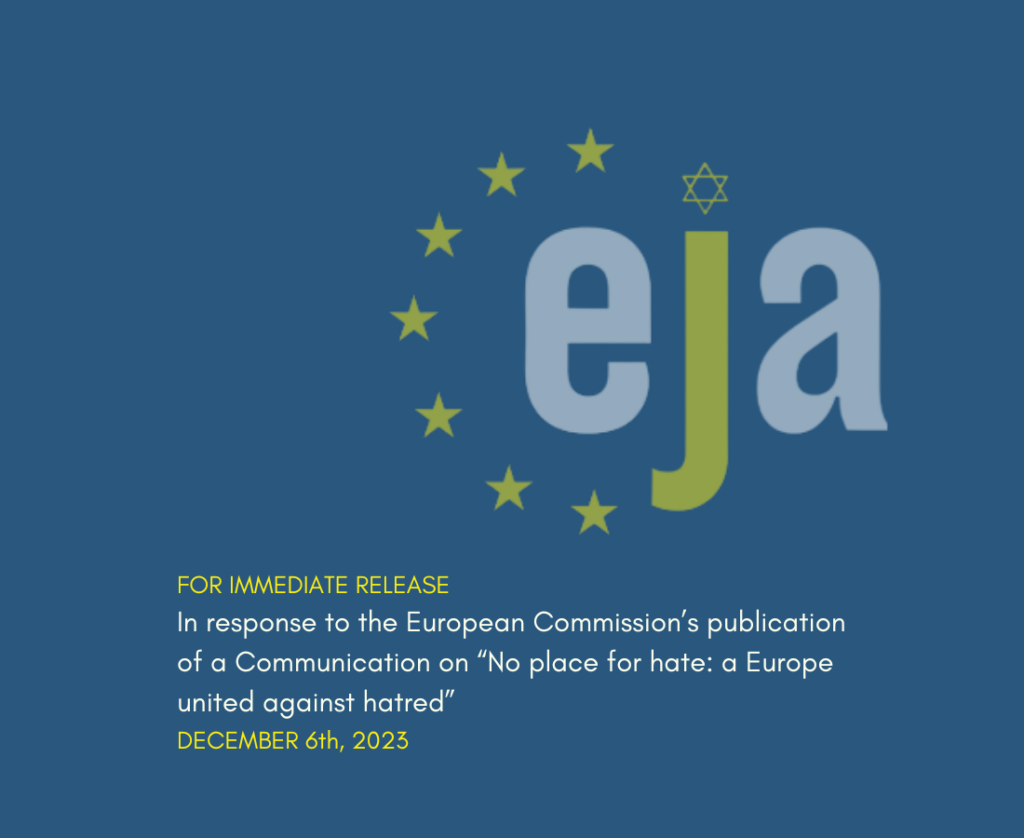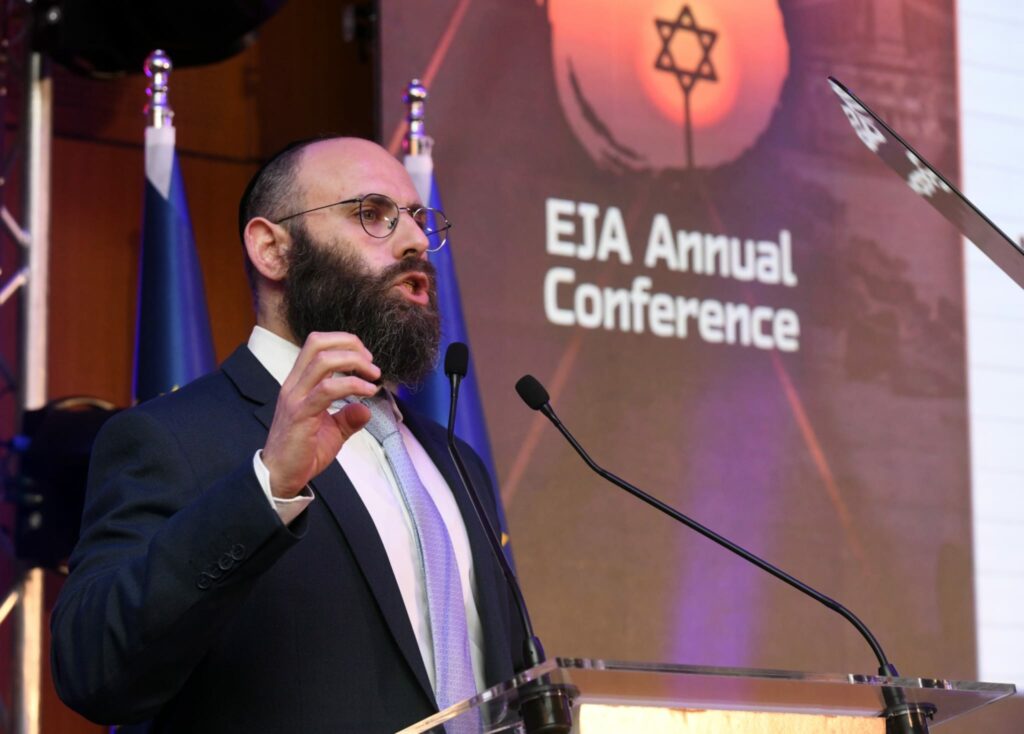Poco prima dello scoppio della Seconda Guerra Mondiale, la comunità ebraica in Belgio era composta da circa 75 mila ebrei, divisi tra le città di Anversa e di Bruxelles. Circa il 45% della popolazione ebraica venne deportata e mandata principalmente ad Auschwitz, di questi, solo 1200 fecero ritorno. Un totale di 28.900 ebrei belgi furono uccisi tra il 1942 e il 1945.
Al contrario di altri paesi in Europa, il regime nazista si dovette scontrare con una forte resistenza popolare che impedì la completa applicazione delle politiche antisemite. Questo clima permise ad una complessa rete clandestina di nascondere più di 6mila bambini, dalla tenera età fino ai 15 anni, all’interno di famiglie non ebraiche sparse nel Belgio. Una di queste fu Regina Suchowolski-Sluszny, che ebbe la fortuna di riunirsi alla sua famiglia e di essere accudita da una famiglia che considera tuttora parte della sua.
Da decenni Regina, vicepresidente dell’Associazione dei bambini che furono nascosti in Belgio, nonché presidente del Forum delle organizzazioni ebraiche, si occupa di raccontare nelle scuole la sua storia e quella di suo marito George, che ebbe un’esperienza simile.
Nonostante abbia visitato centinaia di istituti e raccontato la storia a migliaia di ragazzi in tutto il Belgio, per lei raccontare ciò che le è accaduto durante la Shoah e gli orrori di quel periodo sono una missione di vita, che porterà avanti, come dice, “fino a quando il mio corpo glielo permetterà”. Regina ha parlato di fronte a politici e leader del mondo ebraico a Cracovia alla conferenza organizzata dalla European Jewish Association.
Proprio per l’occasione, Regina Suchowolski-Sluszny ha condiviso con Shalom vari temi, tra cui quello di quanta strada ci sia ancora da fare nell’educazione dei ragazzi riguardo la Shoah e nella lotta all’antisemitismo in Belgio.
“Non esiste una vera educazione in materia. Sanno che c’è stata una guerra, ma oltre a quello non sanno altro” ha tuonato la Presidente del Forum delle Organizzazioni Ebraiche parlando delle lacune del sistema educativo in Belgio.
“Qualche mese fa sono andata in una scuola ed ho chiesto alla maestra di cosa avesse parlato ai suoi studenti. – ci ha raccontato Regina – Lei mi ha risposto che avevano parlato di quell’argomento per un pomeriggio.”
Il problema, secondo Suchowolski-Sluszny, proviene proprio dalla classe docente. “Nonostante sia obbligatorio parlare della Shoah nelle classi, gli insegnanti non sanno cosa sia la Shoah. – ha fatto notare – Per questo parlare di Hitler e far vedere Schindler’s List ai propri alunni non potrà mai essere abbastanza.”
Dei tanti incontri fatti durante questi anni, due episodi hanno particolarmente colpito la sopravvissuta: il primo ha per protagonista una ragazza, che dopo aver sentito la testimonianza ha capito il vero valore delle cose; mentre il secondo riguarda un ragazzo le cui idee sugli ebrei e su Israele erano state fortemente influenzate dal padre, completamente cambiate dopo aver discusso con lei.
In entrambi i casi la testimonianza ha creato in loro un cortocircuito, “ciò che faccio è fargli porre determinate domande, poi capire ciò che è giusto o sbagliato è un processo che i ragazzi devono fare da soli.”
Mentre per quanto riguarda dell’antisemitismo, in linea con quanto detto dal Rabbino Menachem Margolin nel suo discorso di apertura alla conferenza di Cracovia, in Europa non si sta facendo abbastanza per contrastare il fenomeno.
Molto di quanto detto dai vari governi dei paesi membri dell’Unione Europea e dallo stesso governo belga, secondo lei sono “parole al vento”. Lo stesso fenomeno viene preso sottogamba dalle forze dell’ordine del suo paese, che il più delle volte ignorano le segnalazioni della comunità ebraica, al contrario di quanto avviene per esempio in Italia, lodando il lavoro svolto dal prefetto Lamberto Giannini, vincitore del King David Award dell’EJA.
Un’altra scottante problematica riguarda il BDS, aggiunge Regina Suchowolski-Sluszny, e l’esempio lampante è ciò che sta accadendo nelle università europee. “Succede ad Anversa, a Bruxelles, ovunque. BDS è libero di agire e nessuno fa qualcosa per fermarlo. – sostiene – Chi firma le loro campagne sono soprattutto gli accademici.” Un problema che bisogna risolvere il prima possibile se si vuole dare ai ragazzi una vita universitaria più tranquilla, secondo la Presidente del Forum delle organizzazioni ebraiche.
https://www.shalom.it/blog/orizzonte-europa-bc251/a-per-la-memoria-della-shoah-non-si-fa-abbastanzaa-le-parole-di-regina-suchowolski-sluszny-b1105101














